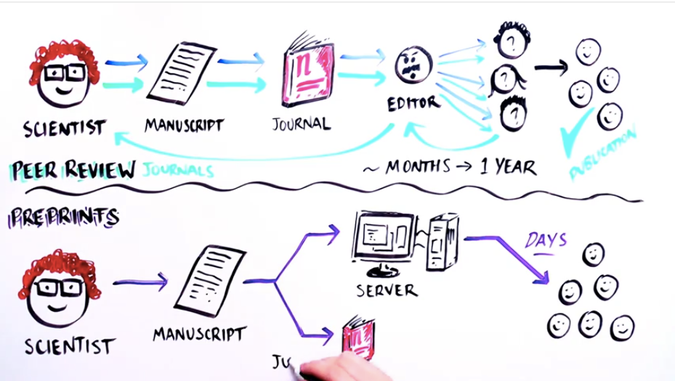Researchers or Corporate Allies? Think Tanks Blur the Line
Think tanks are seen as independent, but their scholars often push donors’ agendas, amplifying a culture of corporate influence in Washington.

Send us a link
Think tanks are seen as independent, but their scholars often push donors’ agendas, amplifying a culture of corporate influence in Washington.

We all need to acknowledge racism and its heavy-handed presence in our communities. We must realize that such conversations do not belong just to minority scientists.

There is such a surplus of Ph.D.s that in the most popular fields, like biomedicine, fewer than one in six reach their goal in academia.
Sexism, racism and other forms of discrimination are being built into the machine-learning algorithms that underlie the technology behind many “intelligent” systems that shape how we are categorized and advertised to.
The underrepresentation of women among the senior ranks of scholars has led dozens of universities to adopt family-friendly employment policies. But a recent study of economists in the United States finds that some of these gender-neutral policies have had an unintended consequence: They have advanced the careers of male economists, often at women’s expense.

Scientists are now contemplating the fabrication of a human genome, meaning they would use chemicals to manufacture all the DNA contained in human chromosomes.

While we may be drawn to the fantasy of Robin Hood, it is easy to see the danger of putting one individual’s idea of right and wrong ahead of society’s democratically enforced laws.

Women’s median annual earnings stubbornly remain about 20 percent below men’s. Why is progress stalling?
It could be possible to publish quickly online without alienating oneself from the traditional journal system.

Drawing comparisons to Edward Snowden, a graduate student from Kazakhstan named Alexandra Elbakyan is believed to be hiding out in Russia after illegally leaking millions of documents.

The "American Nobels" will go this year to three scientists who helped deaf people to hear, two others who made fundamental discoveries about how the brain works, and two of the world's best-known philanthropists, Bill and Melinda Gates.
ScienceTake 100th video: trying to offer compelling imagery, a glimpse at how science is done and answers to questions that are rarely asked.
New evidence suggests that the underrepresentation of women reflects a systemic bias in that marketplace: a failure to give women full credit for collaborative work done with men.
There’s more money to be made investing in drugs that will extend cancer patients’ lives by a few months than in drugs that would prevent cancer in the first place.
One hundred years after Albert Einstein made public his theory of general relativity, many of us struggle to understand it.
The richest awards in science were handed out Sunday night when the Breakthrough Prize organization presented a total of $21.9 million to physicists, mathematicians, life scientists and one talented high school student.
Technology companies know they have a gender and diversity problem in their work force, and they are finally taking steps to try to fix it.
Major awards honor the scientists who are usually in the least need of recognition and funding, which squeezes out opportunities for other scientists.
STEM culture must rein in the pressure to separate professional and personal identities.
Failure to replicate is not a bug; it is a feature. It is what leads us along the path of scientific discovery.
China is spending hundreds of billions of dollars annually in an effort to become a leader in biomedical research. But some experts worry that medical researchers in China are stepping over ethical boundaries long accepted in the West.
This list recounts some prominent retractions that have occurred since 1980.
Cheating in scientific and academic papers is a longstanding problem, but it is hard to read recent headlines and not conclude that it has gotten worse.
There are no valid arguments to support the recent trend toward seven-figure salaries for high-ranking university administrators.
Real scientific controversies are self-correcting shows the BICEP2 and Planck example.
Male professors are brilliant, awesome and knowledgeable. Women are bossy and annoying, and beautiful or ugly. These are a few of the results from a new interactive chart that was gaining notice on social media.
After years of shying away from science, engineering and clean-technology start-ups, investors are beginning to take an interest in them again.
"More people over 65 are funded by research grants than those under 35."
The research conducted using federal funds is driven - and distorted - by the academic publishing model.